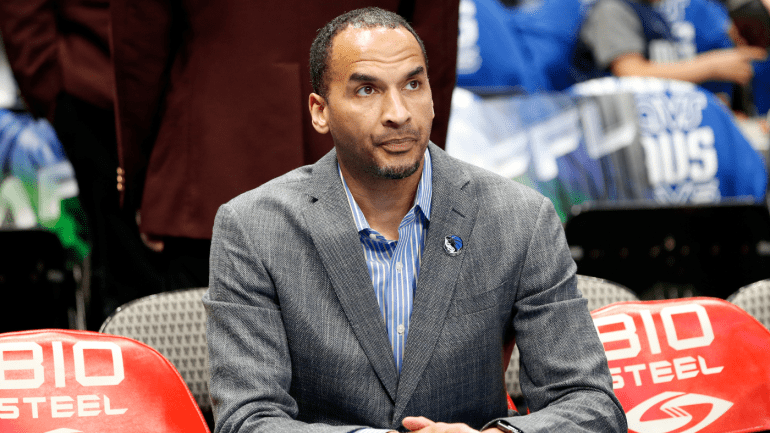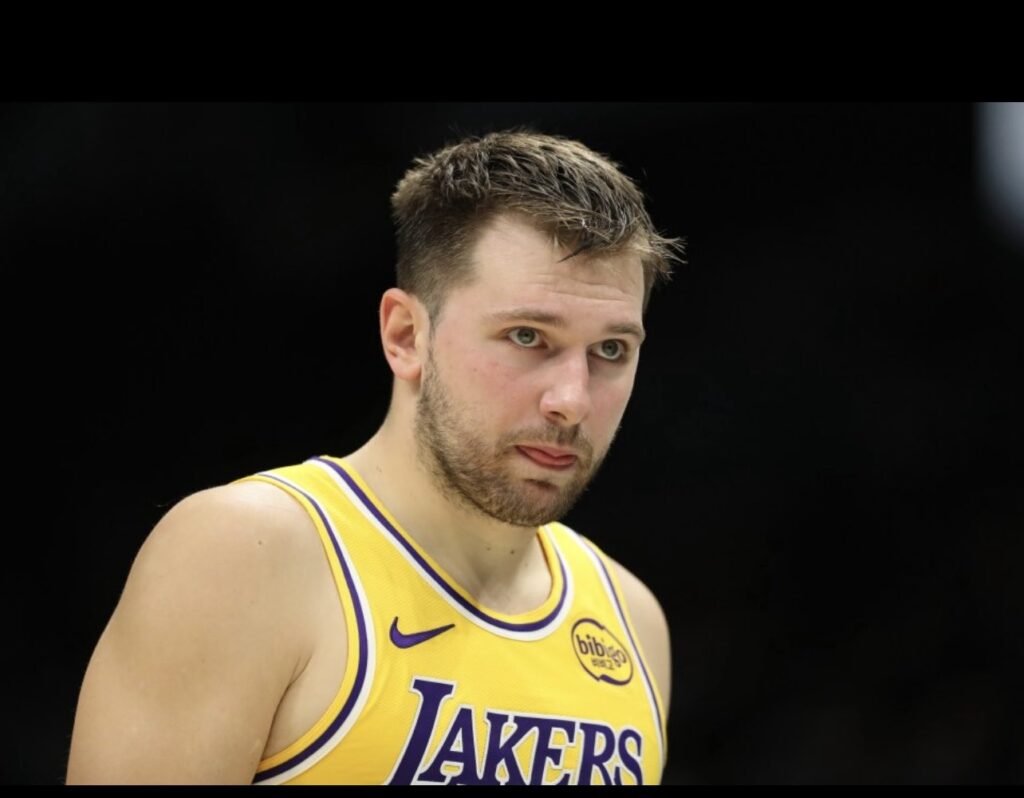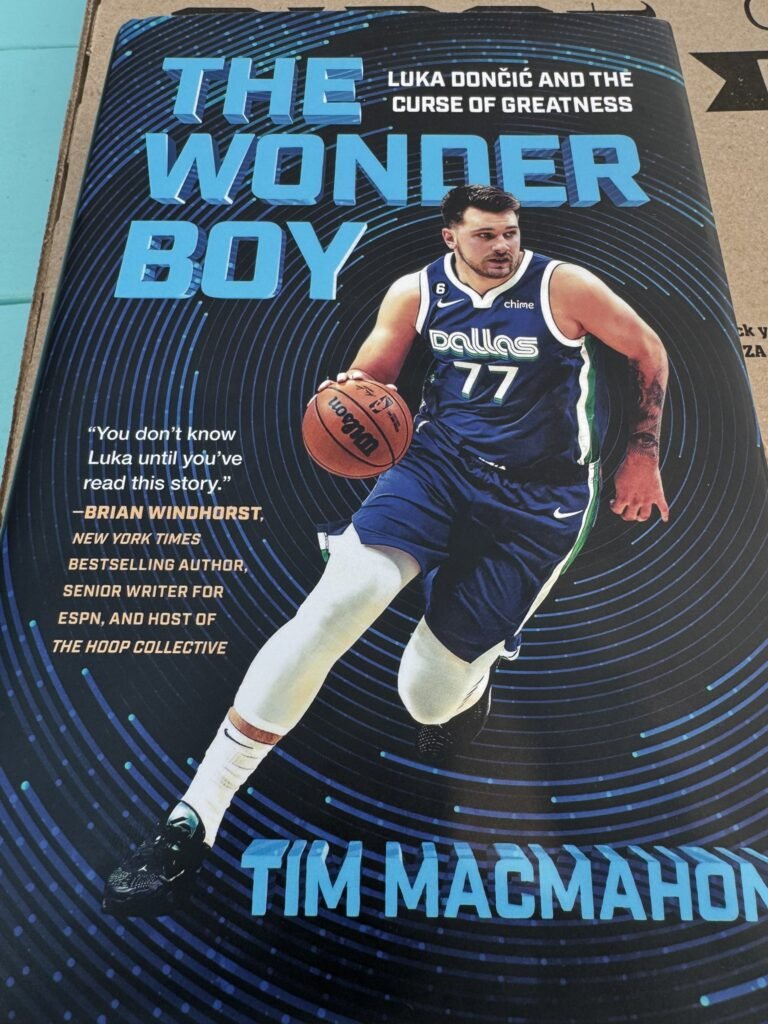Luka Doncic, Anthony Davis, and the Fallout from an Unexpected Trade
The Dallas Mavericks’ front office drama continues to make headlines, and it all revolves around one name: Nico Harrison. The former general manager has been under intense scrutiny for decisions that have left fans frustrated and left the team struggling. Most recently, it was revealed that Harrison allowed Anthony Davis to retain his personal medical team after joining the Mavericks a privilege that was never extended to Luka Doncic when he arrived in Dallas. For many, this revelation has reignited the debate about fairness, favoritism, and long term planning in the NBA.
For years, Luka Doncic was considered the heir apparent to Dirk Nowitzki’s legacy in Dallas. Fans adored him, and his performances seemed to justify the hype. Doncic led the Mavericks to their first NBA Finals appearance since Nowitzki’s era, solidifying his place as the team’s cornerstone. Meanwhile, Anthony Davis, who arrived in a blockbuster trade earlier this year, has been struggling with injuries, sidelining him for the last eight games. Despite that, he was granted special access to his personal medical team a move that has raised eyebrows among analysts, players, and fans alike.
The trade that sent Luka to the Lakers, along with veteran big men Maxi Kleber and Markieff Morris, shocked the NBA world. Few saw it coming, and even fewer were happy about it. Critics immediately labeled it a controversial move, questioning the logic behind giving up a young superstar like Luka for a veteran presence in Anthony Davis. The backlash wasn’t just on social media team insiders and league analysts also voiced frustration, citing the trade as confusing and seemingly detrimental to Dallas’ long term goals.
For Nico Harrison, the fallout was significant. The Mavericks struggled following the trade, posting a disappointing 3-8 start to the season. The decision to allow Davis special privileges, while denying similar accommodations to Doncic, fueled the narrative that Harrison’s management style was inconsistent and potentially harmful to team chemistry. Fans, still reeling from the shock of losing Luka, were quick to question whether Harrison’s personal decisions played a role in the team’s ongoing struggles.

Adding to the controversy, Dirk Nowitzki weighed in on the situation following Harrison’s firing. The Mavericks legend suggested that letting Harrison go should have happened earlier, implying that the negative energy surrounding the trade and front office decisions was too damaging to ignore. “This move should have probably happened this summer, honestly,” Nowitzki said. “I didn’t want this negative energy over the Cooper Flagg era… This [Luka] trade… it made no sense to [the fans] and really there was no explanation for it either.”
Nowitzki’s comments highlight the tension between fan expectations, player performance, and management decisions. The Luka trade, while initially aimed at restructuring the team around Anthony Davis, has not yet produced the results Dallas had hoped for. In fact, the combination of injuries, inconsistencies on the court, and perceived favoritism has made it one of the most scrutinized trades in recent NBA history.
The unequal treatment of Davis and Doncic is a major talking point for analysts. Allowing Davis to keep his personal medical team suggests a level of flexibility not afforded to other players. Luka, despite being a cornerstone and fan favorite, had no similar accommodations upon his arrival. While some argue that Davis’ injury history justified special treatment, others see it as a clear sign of favoritism. This kind of decision making can have ripple effects in the locker room, influencing morale, trust, and even on court performance.
Beyond individual player considerations, the Mavericks’ trade decisions also impact the franchise’s reputation and future. Giving up a talent like Luka Doncic for a veteran who is frequently injured carries risk, and Harrison’s firing underscores the high stakes involved. Front office choices are always scrutinized in professional sports, but when they result in tangible team struggles and public criticism, the consequences are amplified. For Dallas, this has meant rebuilding trust with fans and reassessing internal policies.

While Harrison’s tenure is over, the conversation about fairness, treatment, and management decisions remains. The Anthony Davis situation is just one example of how front office choices can have lasting impacts. NBA teams are expected to balance player needs with team goals, and when those lines blur, controversy is inevitable. In Dallas, this has manifested in trade fallout, public scrutiny, and ongoing debates about leadership and accountability.
The broader lesson from this episode is clear: management decisions in professional sports carry immense weight. Fans, players, and analysts are always watching, and the optics of favoritism or unequal treatment can be as damaging as poor performance on the court. For the Mavericks, the story isn’t just about trades or injuries; it’s about leadership, transparency, and how choices made behind closed doors resonate across the league.
Looking forward, Dallas faces a rebuilding period both in terms of roster construction and public perception. Players like Anthony Davis must prove their worth, while the team works to integrate new strategies and maintain competitiveness. The firing of Nico Harrison may have closed one chapter, but the long term effects of his controversial decisions will continue to shape discussions for months to come. Fans remain invested, not just in wins and losses, but in the fairness and integrity of team operations.
In the end, this story serves as a reminder of how high stakes the NBA front office world can be. Decisions about player treatment, trades, and medical privileges are never purely administrative; they carry consequences for team dynamics, performance, and public perception. For Dallas, the Harrison era is over, but the conversation it sparked about fairness and leadership is far from finished.
